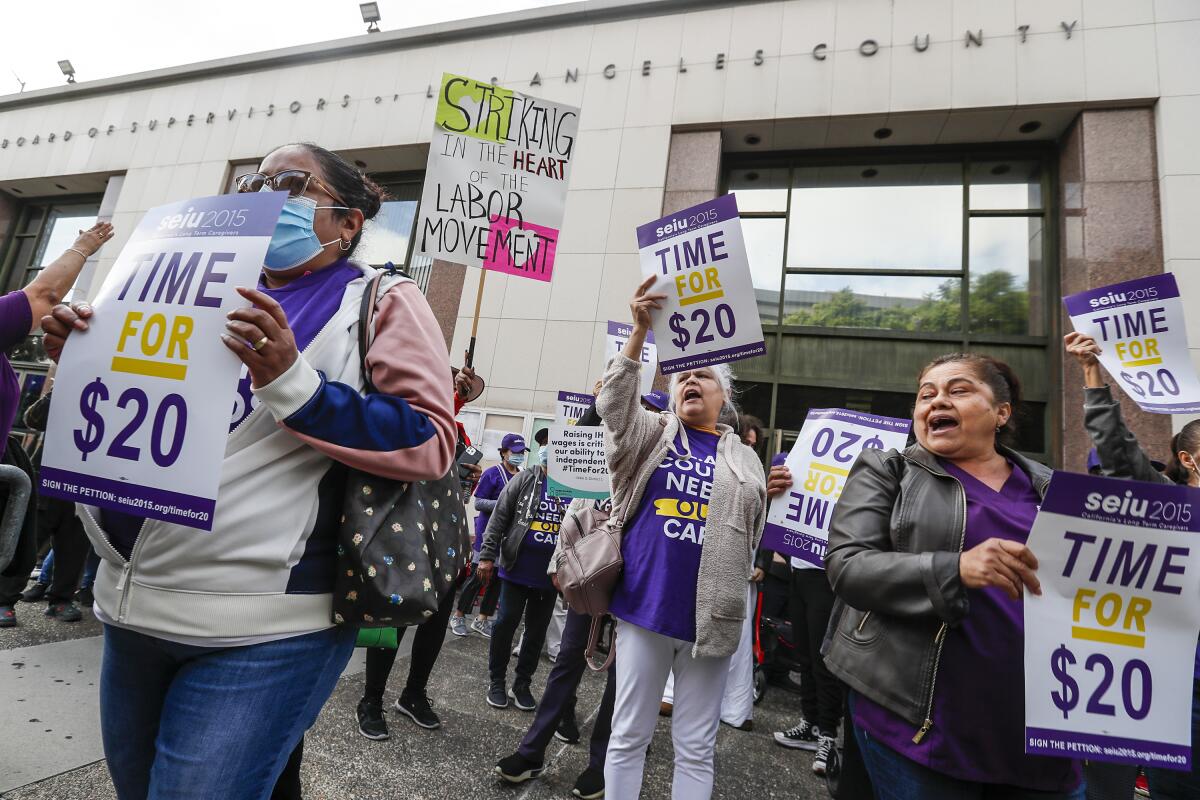Letters to the Editor: How low pay for in-home care workers devastates needy families

To the editor: My youngest grandson, now 5 years old, was born with congenital muscular dystrophy and is bound to a wheelchair for life. He is 100% reliant on caregivers for every aspect of daily living. (“‘We’ll end up on the streets’: L.A. caregivers for elderly, disabled push for higher pay,” Nov. 27)
His parents are divorcing due to the stress. (The divorce rate among special needs families is staggeringly high.) His dad, a recent medical student grad, has full custody of all three of their children. As the grandma, I have spent hundreds of hours advocating for our grandson’s care as I watched the marriage crumble.
It’s been an incredibly difficult task for me to backfill the void left by the mom’s departure; this is made even more difficult by the tight labor market and lack of caregivers available to work for such low pay. It’s ludicrous to think we can find anyone willing to work as a caregiver for $15.50 per hour, the San Diego County rate for in-home support services.
The extra burdens of caring for a severely disabled child are difficult enough. It is not humanly possible for a single parent to seek out the caregiving assistance they deserve and need. Higher pay will certainly help, but it’s just the tip of the iceberg.
Karen Baldwin, El Cajon
..
To the editor: It is estimated that close to 70% of our population will require long-term care, but unless one falls into the financial requirements of the In-Home Supportive Services program, end-of-life costs are enormous.
About 3% of all Americans have long-term care insurance, which is very expensive. Ours is one of the few prosperous countries that does not provide for long-term care.
The economics of having caregivers make $20 per hour are staggering. In California, time-and-a-half pay is mandated after eight hours in a single shift, so that comes to $30 per hour for a caregiver working overtime.
If an individual has a long-term neurological disorder like Parkinson’s or a major stroke, care could go on for years. Unless one is in the upper 1% economically, this is a financial tragedy for the patient and the family, not to mention the hardship of the caretaker.
There are at least two sides to this unfortunate situation, and our society has not prepared to face this stark reality.
Paul Milberg, Woodland Hills






